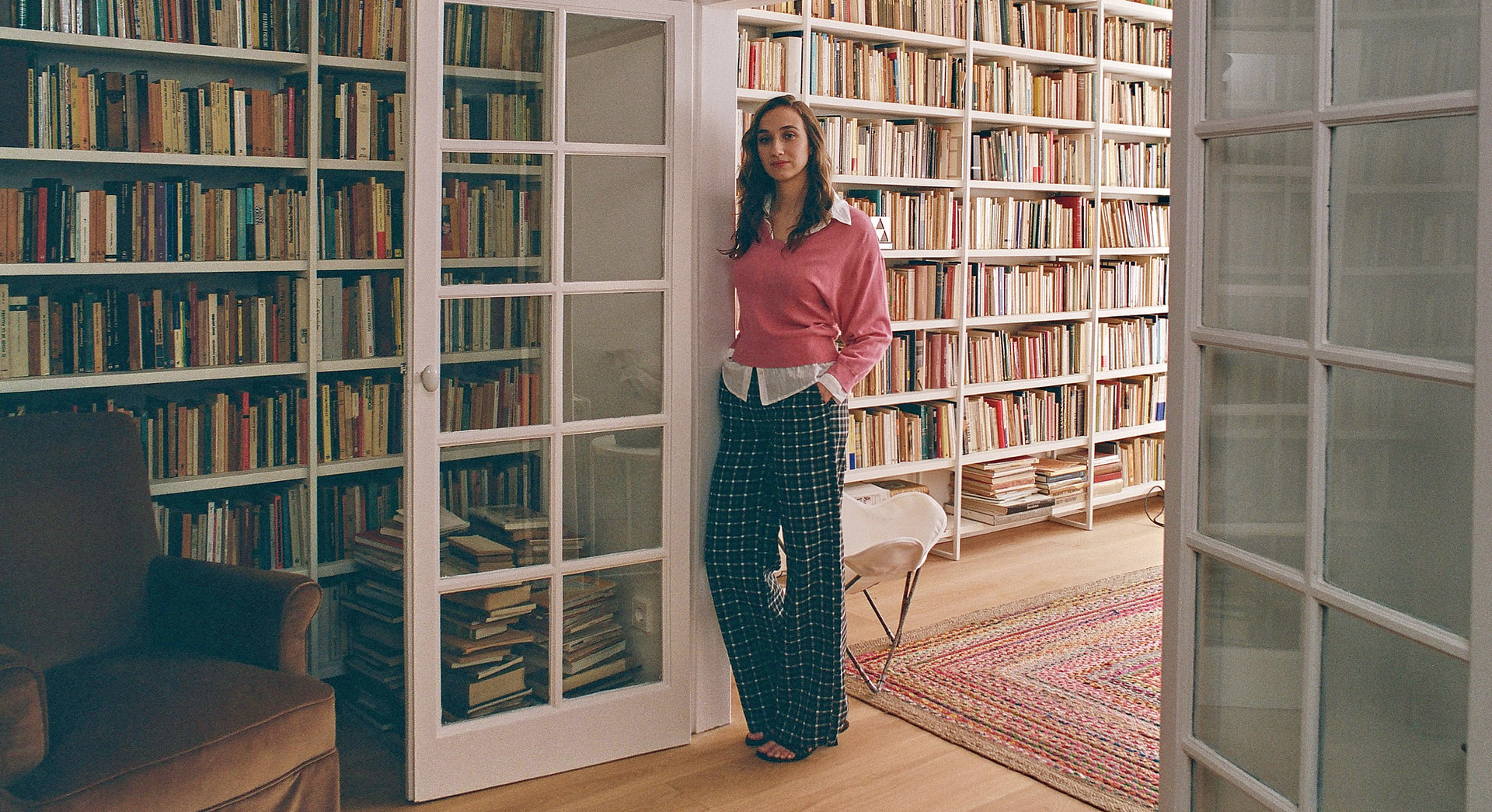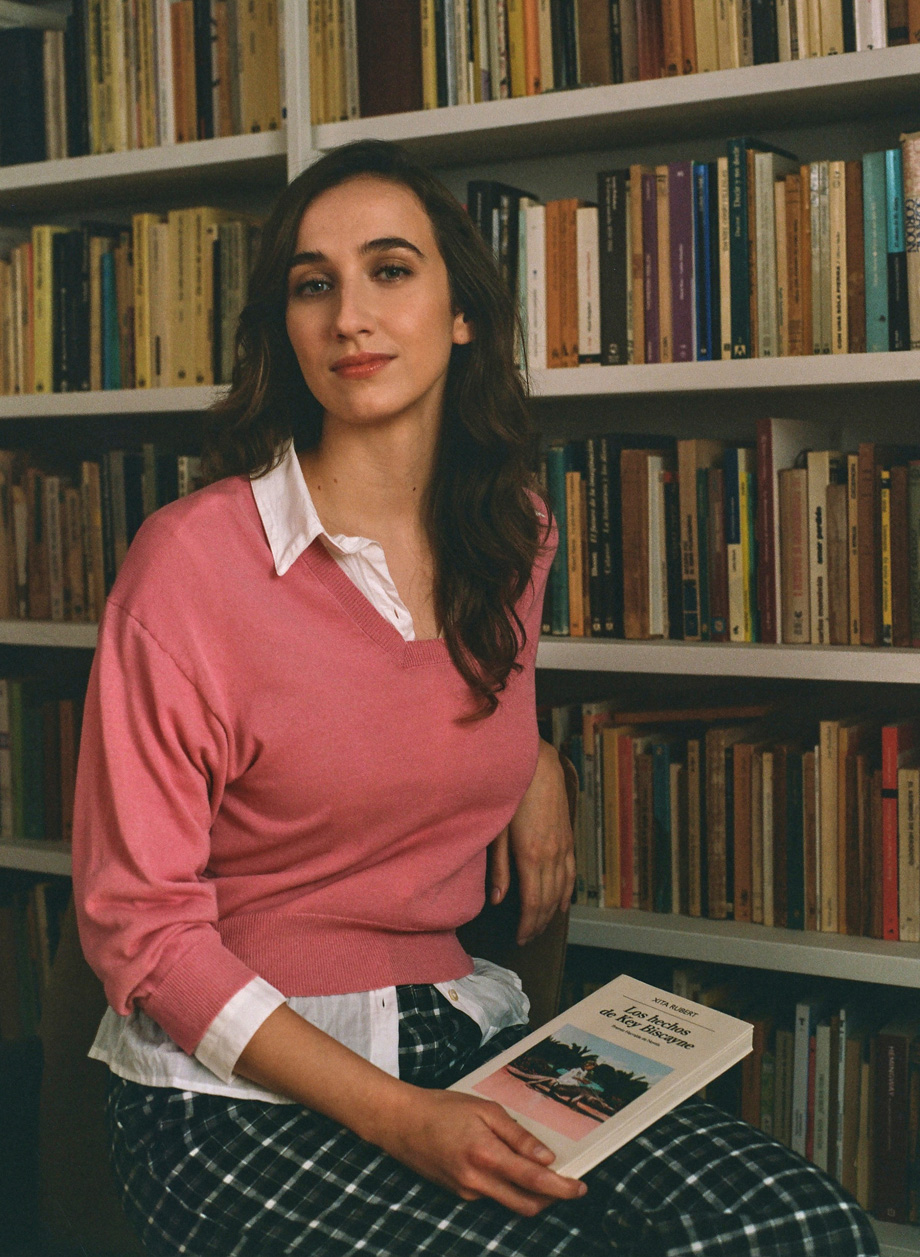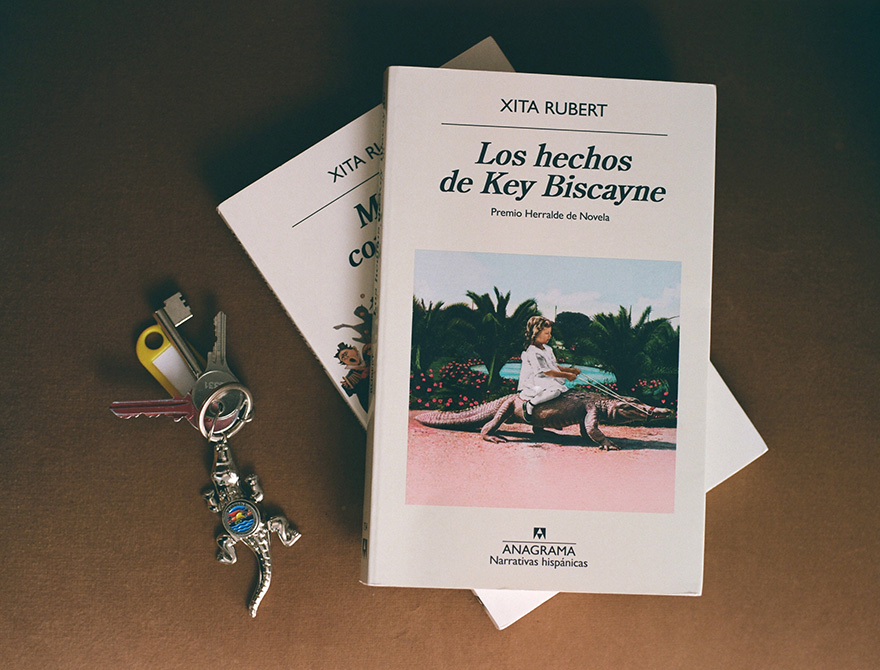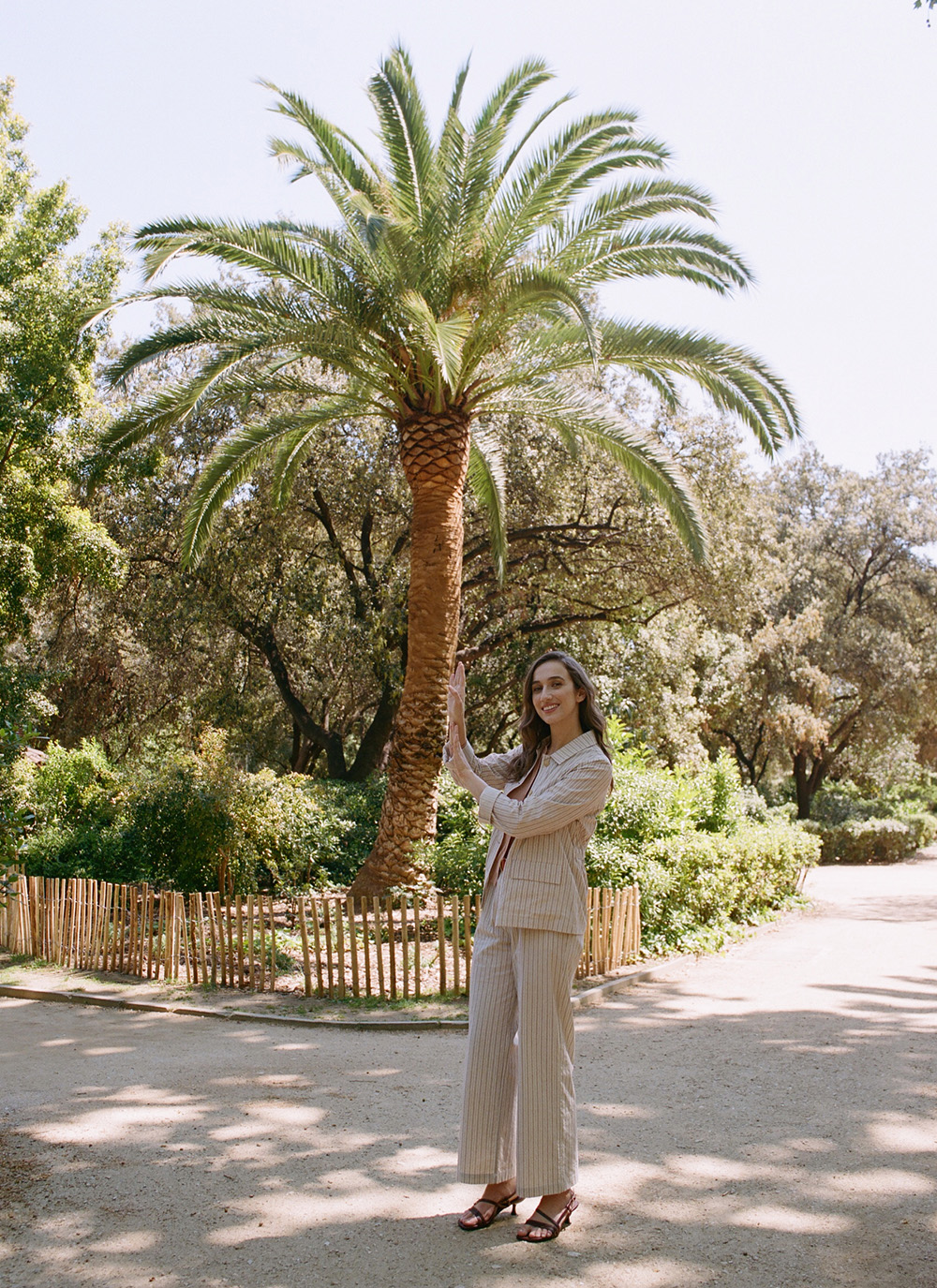- Inicio/
- Editoriales/
- Xita Mauleón

From another point of view
Xita Rubert
Xita Rubert
Author
We met up with her a few days after St George's Day. She welcomed us to her home in Barcelona with a smile, which would play on her lips the rest of the day. In her home we found thousands of books, an inherited altarpiece of Saint Thomas of Aquinas and the 2024 Herralde Novel Prize.


NT — We can’t stop thinking about your library, which is a mix of your own books and books you’ve inherited. What's it like growing up surrounded by books?
Xita — The older I get, the more extraordinary it seems to me to have grown up in houses simply bursting with books from both my parents. Now that my father’s passed on, I've added his library to mine, and it's as if I could touch his soul even after his death. Sometimes I pick up a book and I see the passages he highlighted, his notes along the margins, and it’s as if we had just carried on with our conversation.
NT — Which authors, works or genres had an impact on you when you started writing?
Xita — Ever since I was very young, I would come up with fictional stories where my friends, teachers and family were the characters. So, to a certain extent, the first thing I ever read was my own environment and not really books per se. But then I discovered literature and my writing changed. I remember reading Dostoevsky, Ibsen and Plato as a tween. A little later, I stumbled upon Alice Munro, Clarice Lispector and Herman Melville. The unclassifiable, obscure and comic oddballs all rolled into one – those are my cup of tea.


NT — In this digital age, we're tickled pink that you still write your manuscripts by hand. Why do you do that?
Xita — I instinctively started doing it in secondary school, when everything was going digital. I never got the point of taking down notes on the computer, of using screens when learning happens through personal experiences and human interaction. I was lucky enough to have a really good teacher who was an analogue person, and despite the fact that I’m 28 years old, I’m quite the Luddite.
NT — What are you working on right now? Any new project you can give us the heads up on?
Xita — I’m working on my next novel and I’m conceptualising my first non-fiction book. But this is a long, drawn-out process about which I can actually say very little at the start because things are still evolving. The important thing is listening to each book and staying true to the story that the book itself wants to tell. So, to listen properly, I can’t really make too many demands of it beforehand.


NT — How would you define your style? / How would you categorise your works?
Xita — That's not for me to say really, but I’d say that they can always be quite deceptive for people who see the world in black and white rather than in shades of grey. My novels use the narrative voice, and it has as many things to say as to conceal. I’m not a fan of narrators who speak under the guise of transparency or morality – I sense a certain falseness there. I prefer mystery, the honesty of an enigma, translucent rather than clear.

NT — What would you like your work to be known for? How would you like your work to be remembered?
Xita — It would make me very happy if every once in a while, even just one person were to find beauty or truth in my stories.
NT — Any advice for someone who’s just starting to write?
Xita — Read books and surround yourself with people who expand your little bubble.
Now, on to the classics:
NT — A book.
Xita — Seymour: An Introduction, by J. D. Salinger
NT — A film.
Xita — Some Like It Hot, by Billy Wilder
NT — A place.
Xita — Sant Martí d’Empúries